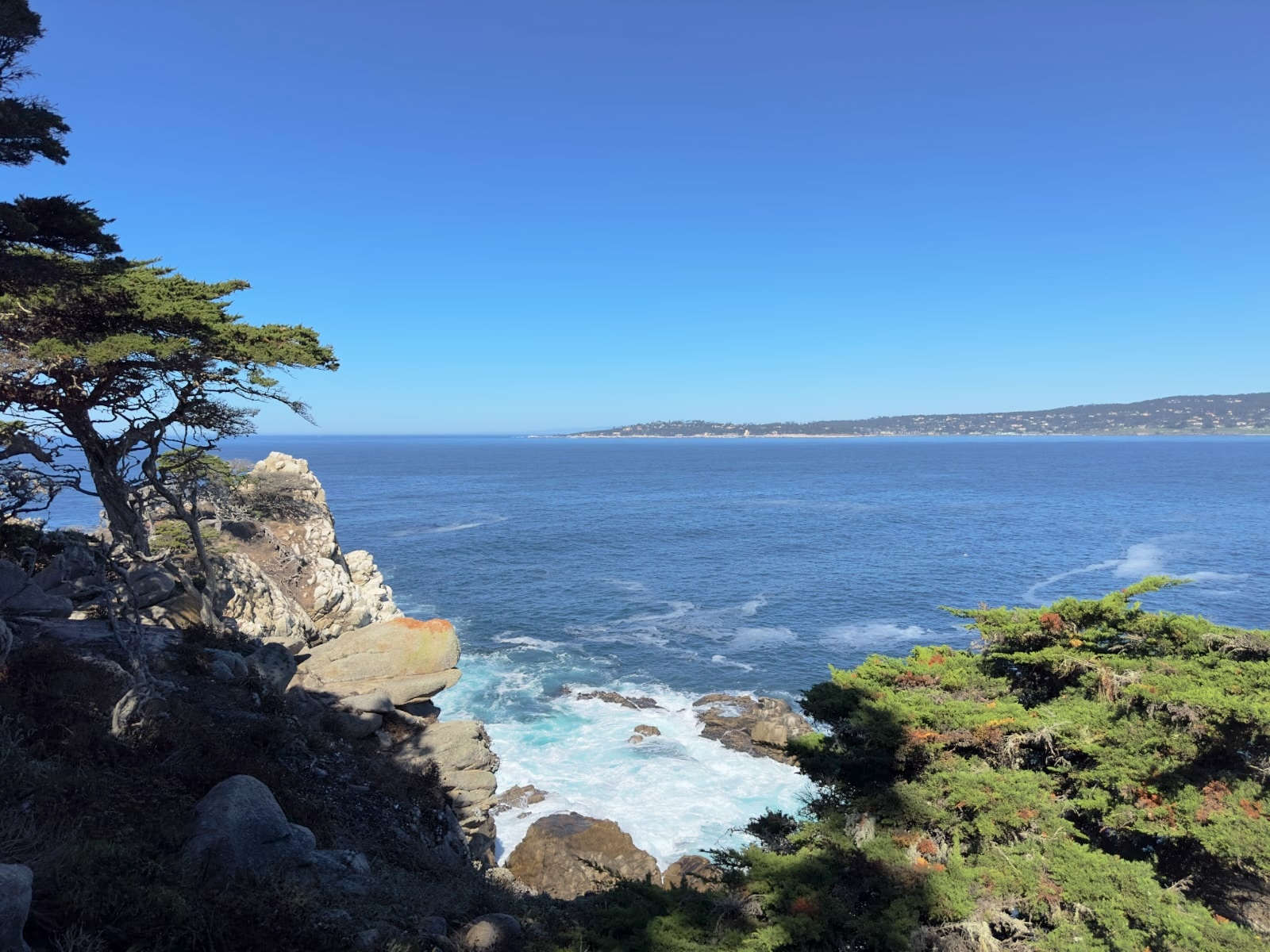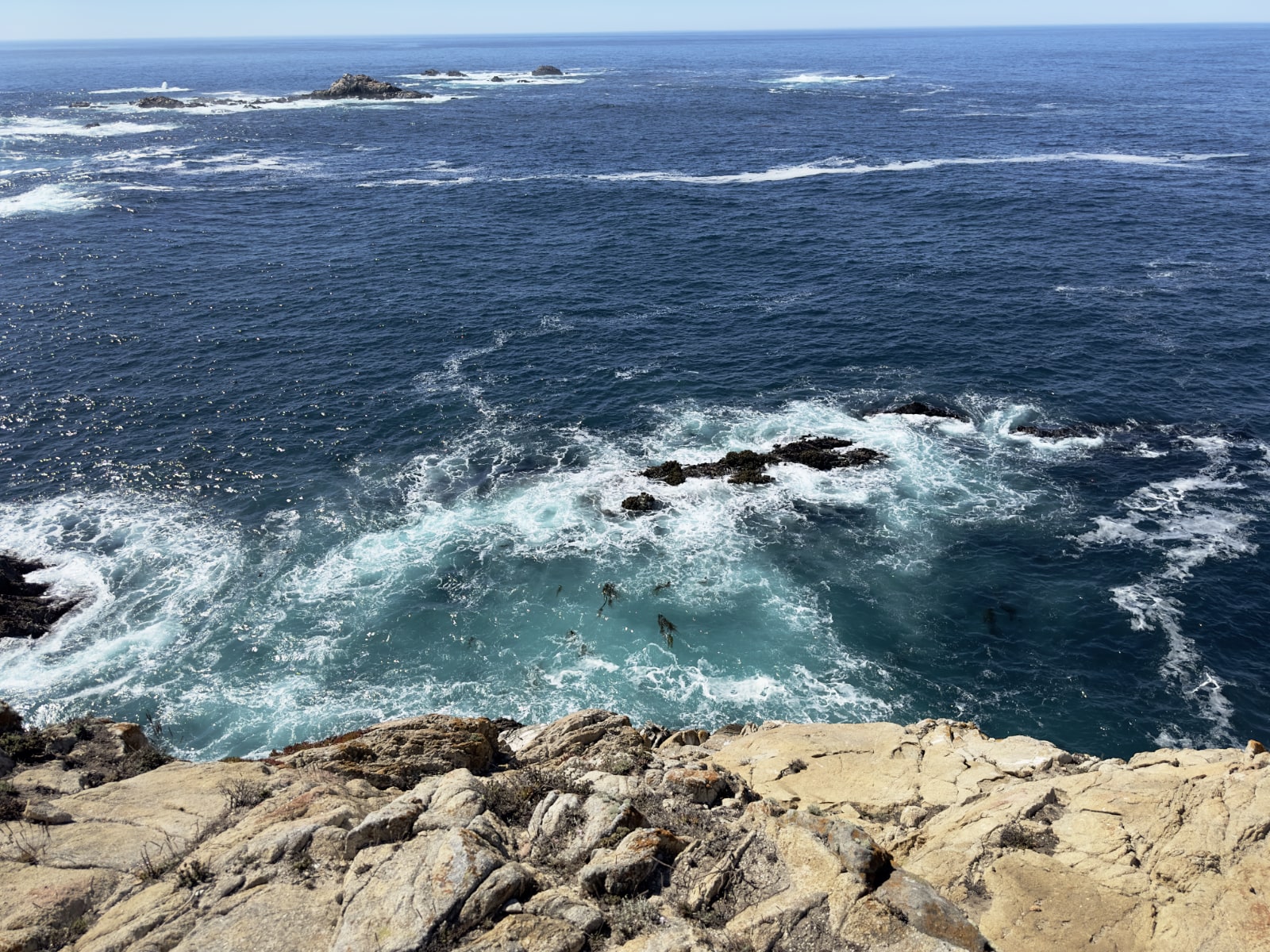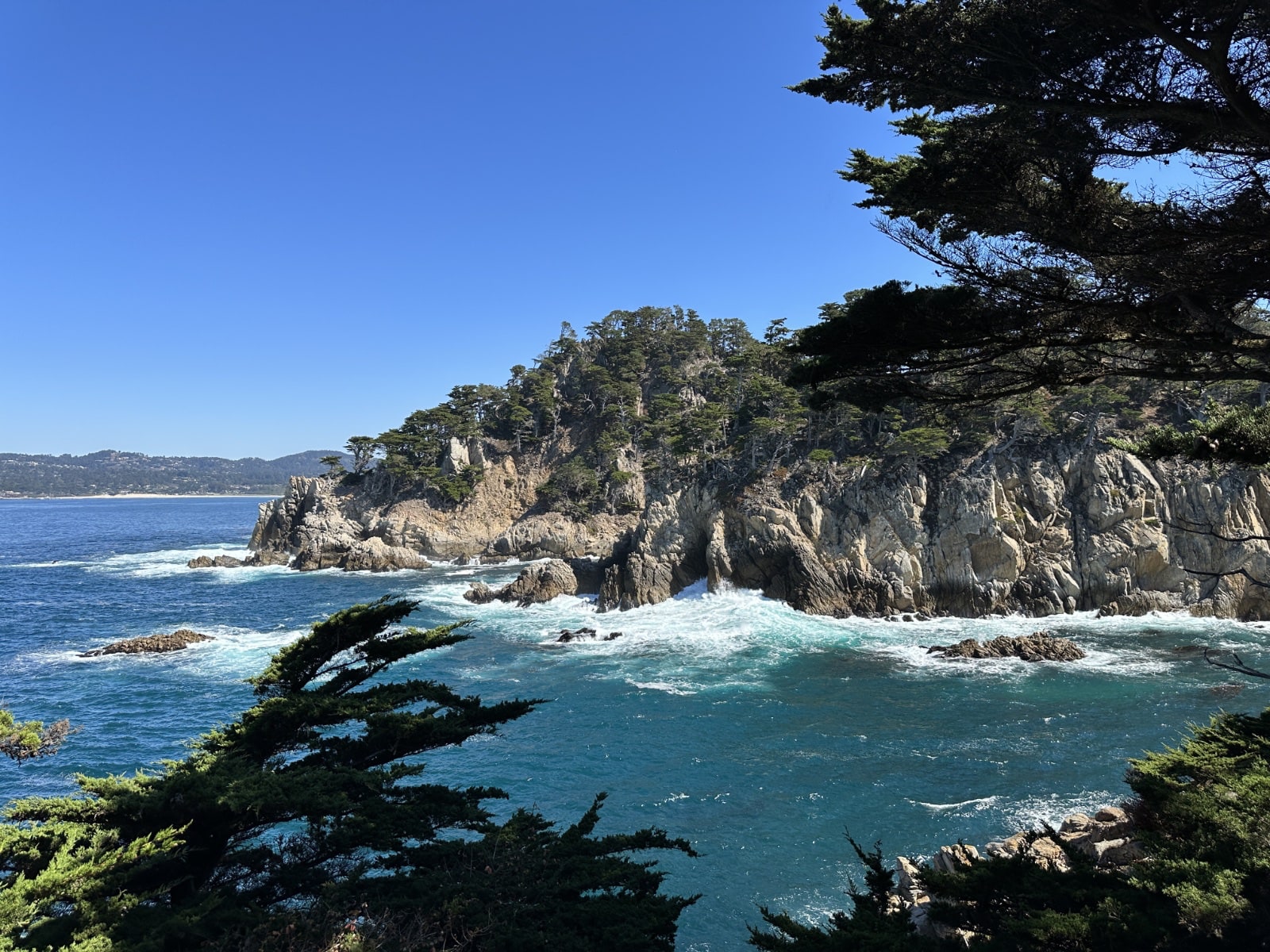Point Lobos, often hailed as the “crown jewel” of California’s state parks, is a must-visit for any outdoor enthusiast or nature lover. Known for its stunning vistas, rich biodiversity, and historical significance, this natural reserve promises an unforgettable experience. Whether you’re a seasoned hiker, an avid bird watcher, or simply someone seeking serenity amidst nature, Point Lobos has something for everyone.
Location: An Encounter of Land and Sea
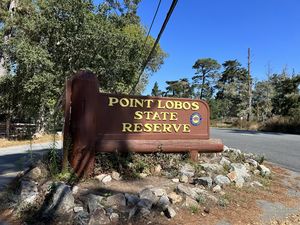
Point Lobos State Reserve Sign
Situated in the captivating town of Carmel-by-the-Sea, Point Lobos graces the southern end of Carmel Bay. The reserve is conveniently located along the iconic Highway 1, approximately 125 miles south of San Francisco and 325 miles north of Los Angeles. The largest nearby city is Monterey, making Point Lobos a perfect day trip for those staying in the area.
The reserve is often described as the “greatest meeting of land and water in the world” – a testament to its diverse and rich marine habitats. From the North Shore Trail, visitors can catch a glimpse of Pebble Beach and Monterey. Traveling south, the Big Sur coastline, one of the most breathtaking stretches anywhere, unfolds before your eyes.
Protected Habitats: Preserving Nature’s Splendor
Point Lobos State Natural Reserve is not just a sanctuary for people seeking natural beauty and tranquility. It’s also home to a plethora of plants and animals protected under state law. The Point Lobos State Marine Reserve, which covers over 5 square miles of oceanic area, is a “no-take zone” where all marine life is protected. An additional 8 square miles fall under the Point Lobos State Marine Conservation Area, which restricts recreational and commercial fishing to preserve the marine ecosystem.
A Walk through History: From Native Tribes to Whaling Stations
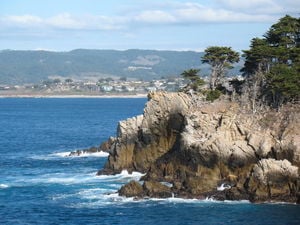
Ponit Lobos Monterey View
Point Lobos carries a rich history that dates back thousands of years. The Ohlone people, native to this area, harvested shellfish from these waters long before European settlers arrived. The reserve has seen various inhabitants and landowners through the centuries, including one of the significant shore-whaling stations along the California coast.
In 1933, the state of California purchased the land to preserve its vital habitats. Today, the Whaler’s Cabin, built by Chinese fishermen in the 1850s, is the only historic structure left intact by the state park system. It now serves as a museum, offering visitors a glimpse into the reserve’s cultural history and the whaling industry that thrived here in the mid-to-late 1800s.
Diving in Point Lobos: A Submerged Wonderland
For scuba diving enthusiasts, Point Lobos offers an unforgettable underwater experience. Its crystal-clear waters are teeming with kelp forests, vibrant marine life, and fascinating geological formations. However, diving is only permitted in two locations: Whalers Cove and Bluefish Cove. Remember to make reservations in advance as diving slots are limited.
Wildlife Galore: From Sea Lions to Bird Island
Point Lobos is a haven for wildlife. Its name, Punta de los Lobos Marinos, translates to “Point of the Sea Wolves,” a nod to the large population of sea lions that inhabit the area. Sea Lion Point is one of the best spots to enjoy these magnificent creatures.
Bird watchers, too, will find Point Lobos a paradise. Bird Island, easily accessible via the Bird Island Trail, is home to a wealth of bird species. From pelicans to cormorants, the variety is truly astounding. During breeding season, the island is a flurry of activity, offering a unique opportunity to observe these creatures in their natural habitat.
The Majestic Monterey Cypress: A Sight to Behold
The Cypress Grove Trail is another must-visit spot within the reserve. This family-friendly hike leads you through the Allan Memorial Grove of Monterey cypress trees – one of the only two naturally grown stands of this species on Earth. The trail also offers a detour to the Old Veteran Cypress Tree, a centuries-old giant clinging to the cliffside.
China Cove and Gibson Beach: Nature’s Masterpieces
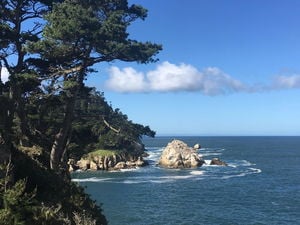
Gorgeous Point Lobos View
China Cove, a picturesque spot known for its emerald waters, sea caves, and abundant wildlife, is another jewel in Point Lobos’ crown. The Bird Island Trail leads to this stunning location and continues around Pelican Point towards Gibson Beach. These spots are ideal for those seeking breathtaking views and serene moments.
Exploring the Reserve: Trails and Routes
Point Lobos offers a variety of hiking trails for different fitness levels. For those with ample time, the Point Lobos Loop Trail is an excellent option. This 5-mile trail combines several routes, taking you along the spectacular coastline and through diverse landscapes. Whether you are a seasoned hiker or a casual stroller, the trails at Point Lobos promise an enriching experience.
Know Before You Go: Tips for a Smooth Visit
Before embarking on your adventure, it’s crucial to familiarize yourself with the reserve’s rules and guidelines. Visit the official Point Lobos State Natural Reserve website for the latest trail conditions and other updates. Keep in mind that the reserve’s hours vary and parking spots fill up quickly, especially on weekends. To ensure a smooth visit, it’s advisable to arrive early or later in the day when spots are likely to open up.
In Summary
A visit to Point Lobos State Natural Reserve is more than just a day out in nature. It’s an immersive experience that takes you through diverse landscapes, rich history, and a vibrant array of flora and fauna. Whether you’re exploring the trails, diving into the clear waters, or simply soaking up the views, every moment at Point Lobos is a celebration of nature’s grandeur.
So, pack your hiking boots, grab your binoculars, and get ready for an unforgettable adventure at Point Lobos – the hidden gem of California’s state parks.
Additional Information
Remember, your visit to Point Lobos is not just about enjoyment; it’s also about preserving this natural wonder for future generations. Please respect the reserve’s rules and guidelines. Stay on marked trails, refrain from disturbing wildlife, and leave no trace behind. Together, we can ensure that Point Lobos continues to be a sanctuary for all who appreciate nature’s beauty.
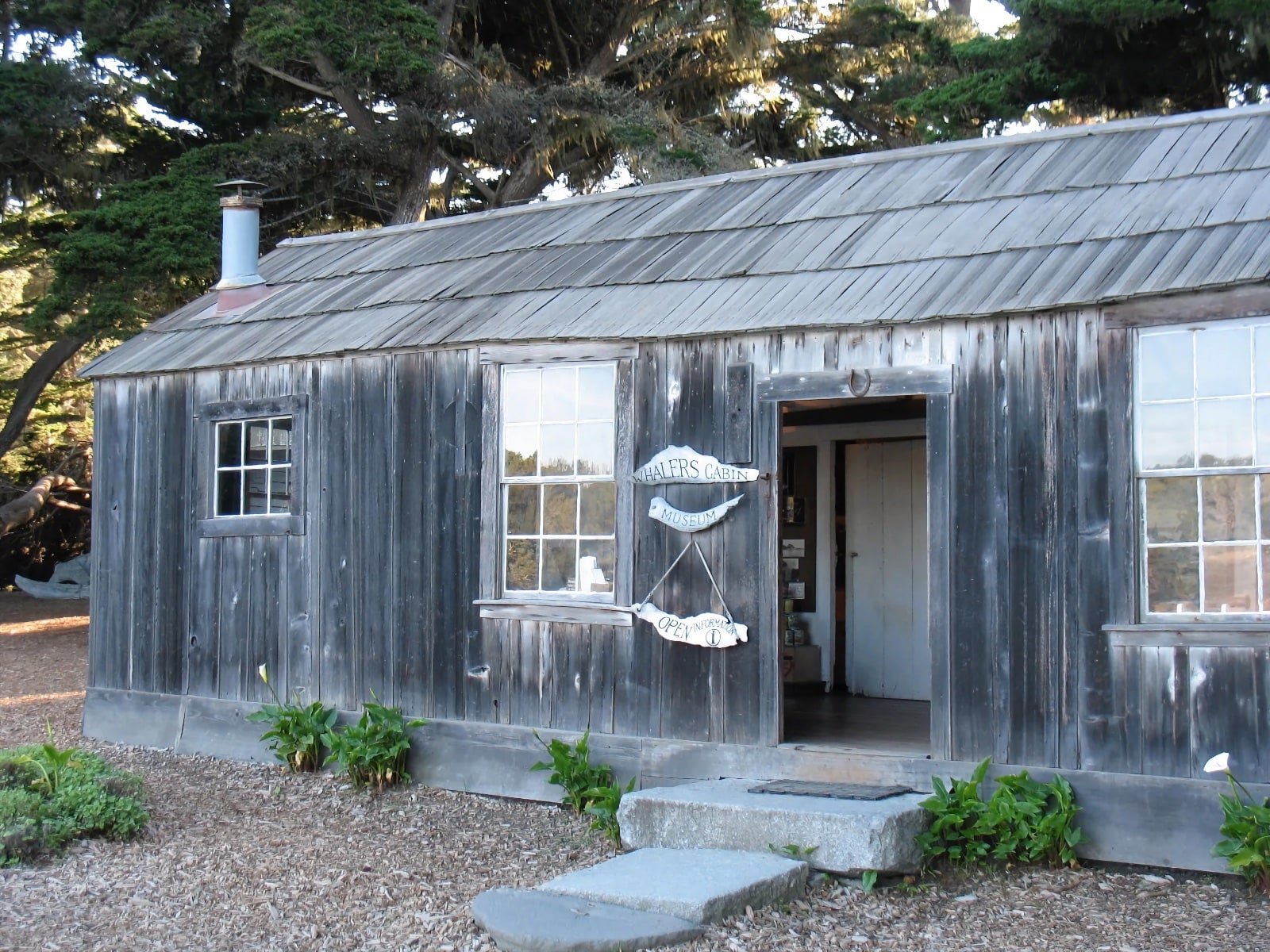
Point Lobos Museum
